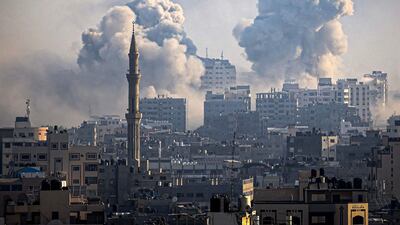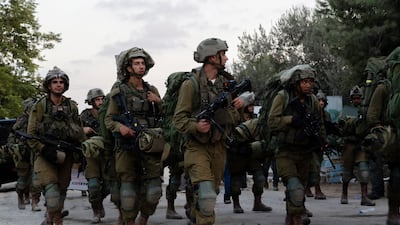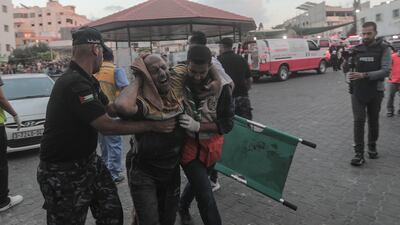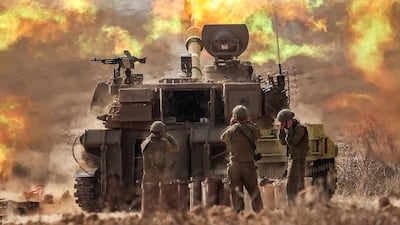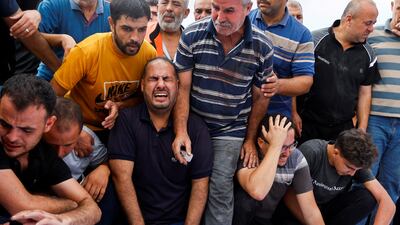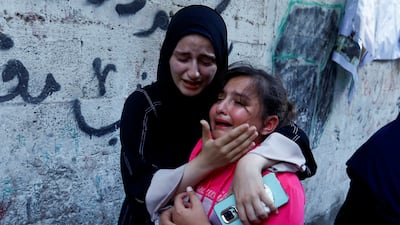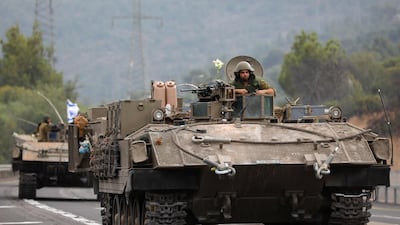LATEST: Gaza in darkness as Israel invasion looms
In southern Lebanon, the days are marked by intermittent exchanges of artillery and rocket fire as Shiite Lebanese group Hezbollah and the Israel military engage in tit-for-tat strikes along the Lebanon-Israel border.
Wednesday was the fourth consecutive day of cross-border exchanges, raising a worrying question in the minds of many Lebanese: could the situation spiral out of control as the arch enemies test their unwritten rules of engagement?
The clashes so far have resulted in the death of three members of Hezbollah and two members of Palestinian Islamic Jihad, according to the two groups. At least one Israeli soldier was also killed in the battle, the Israeli military said.
On Wednesday, Israeli strikes caused injuries to three civilians, as reported by the Lebanese Italian Hospital in Sour.
But the situation has not yet escalated into a full-blown open conflict, with both sides adhering to the principle of proportionate retaliation.
"The risk of war is very substantial," a French diplomat told The National.
"For now, it's not a high-intensity conflict, Hezbollah is primarily sending messages of deterrence.”
However, the situation could quickly escalate in the event of a full ground invasion of Gaza in a bid to destroy Hamas, the Hezbollah-allied Palestinian militant group governing the blockaded Strip, “which seems very likely”, the diplomat said.
“Hamas has achieved significant strategic successes: it is now solely spearheading the Palestinian cause, while Israel has faced a violent humiliation.”
Against this backdrop, “Hezbollah won’t let a complete destruction of Hamas's capabilities happen,” he said.
But “it depends on various factors, the perception of each side's capabilities... The situation can quickly slip out of the control of the involved parties".
Another western diplomat cautioned that while the unwritten terms of engagement were still being followed, the risk for miscalculation was high.
Others maintain a more optimistic outlook.
Political analyst Imad Salamey said both sides are aware of the substantial cost that an open conflict would carry, including thousands of casualties and widespread infrastructure damage.
“In my view, Hezbollah wants to show solidarity with the Palestinians and rekindle sympathy among the Sunni population," he said, alluding to the long-standing sectarian divide between Shiites and Sunnis, a defining factor in the region's political landscape.
But the cost of openly engaging in the conflict far outweighs the potential benefits for Hezbollah.
“Any declaration of war would face strong domestic opposition from anti-Hezbollah factions, which would carry significant political costs," he said.
For example, a politician from the Lebanese Forces, a faction deeply opposed to Hezbollah, said Lebanon was unable to bear the brunt of a war – especially given the dire economic situation it faces. "What's happening in Gaza should remain in Gaza," the official said, adding that conflict was only a detriment to Lebanon.
Mr Salamey also stressed that the power balance was not in favour of Hezbollah, as the US is rapidly sending weapons, air defences and munitions to Israel.
On Wednesday, the world's largest aircraft carrier arrived in the eastern Mediterranean.
“The US is a third-party actor constraining Hezbollah's full participation in the war," he said.
“Another factor to consider, is that Hezbollah's own constituency have nowhere to go in the event of a full-blown conflict as they have historically sought refuge in Syria."
He added that Israel also does not have an interest in opening a new front with the Shiite militia and suffering additional losses.
"Even if Hezbollah are not as powerful, they can inflict significant damage," he said.
“But everything is possible, one miscalculation that caused massive casualties on either side, could trigger the war.”

